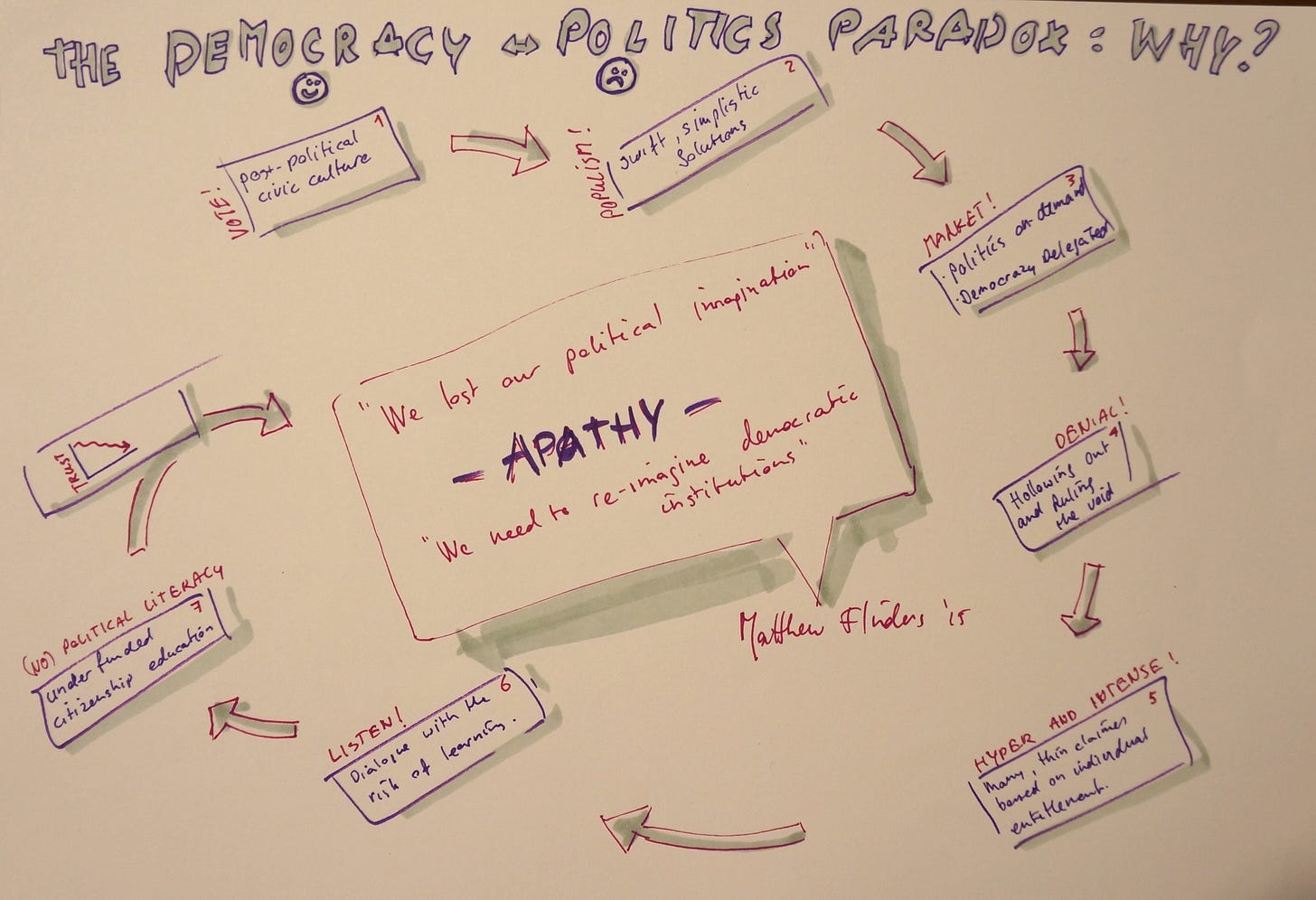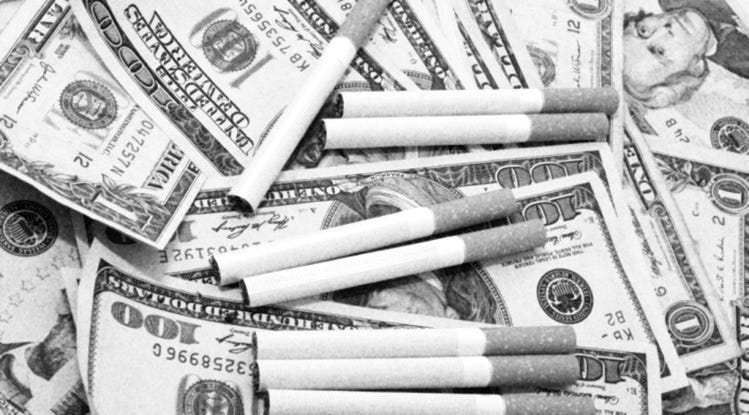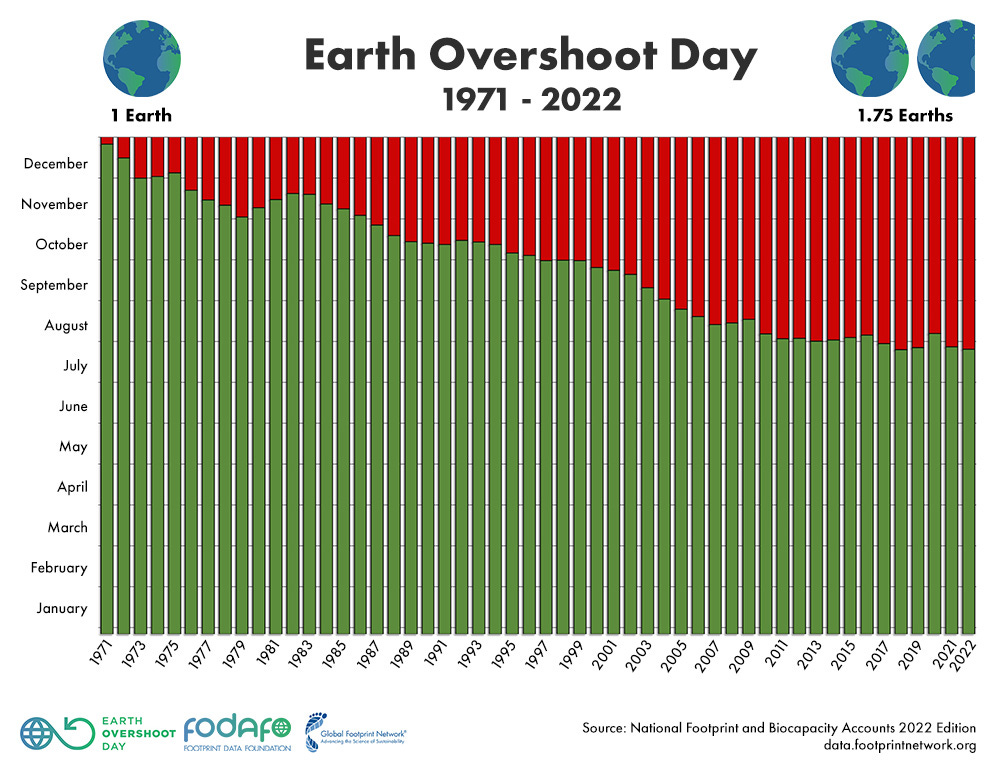Do we see more, as if blinders gone,
was the day for us unknown at dawn,
did facts and symptoms finally show,
is it to populists and demagogues we owe?
Did we need this unprecedented entropy,
to get us out of this political apathy?
Now we see the societal walls collapse,
shouldn't we ask why we let time elapse?
For the trust we lost in democratic politics,
we positioned the modern referendum as a quick fix,
the foundation of a paradoxical utopian dreamland,
was like ordering politics on demand.1
Then swift, simplistic solutions,
hollowed out the classical institutions,
followed by many shallow individual claims,
reducing society to a theory of games.
Modernity brought the gray of liquidity,
from black and white to linguistic instability,
the ongoing process of emancipation imputes,
the erosion and end of all absolutes.2
Banning philosophy as a smokers-room avocation,
we stayed clear from painful deliberation,
books became posts and positions mere shouts,
disregarding the obvious and neglecting the doubts.
Without the permanent critical attitude,
we all became and stayed the market’s servitude,
shareholder’s value with a hint of CSR at best:
the purpose-wig of enlightened self-interest.
And why be bothered as equity rises,
staying silent is smart, as action jeopardizes,
all that is accumulated and feels entitled,
this can be lost when one's enlightened.3
But let's just be fair to state now this,
we all knew that capitalism was amiss,
when cigarette lobbies used the genitives,
to refer to our democratic representatives.
And did anyone really give consent,
when nature's resources went overspent4,
for the sake of cheap plastics, oil or soil,
our consumerism silenced the inner turmoil.
While we all saw how the creation of wealth,
did entail the destruction of public health,
the overwhelming cheers for freedom of choice,
silenced our historical moral voice.
Public benefits based on private vices5,
now turned on us as the public sacrifices,
private profits with externalized costs,
the common's well-being now as trash being tossed.
I ask you, can we see the logical saviour,
can we change our joint behaviour,
is it a realistic hope to acquire,
the virtue of self-constraining our desire?6
The unfair and all but lost battle,
needs a new frame for a rebuttal,
philosophical action might bring balance,7
to this all-entangled contemporary challenge.
There is nowhere to hide from the contemporary challenges to our society. In the current unprecedented unrest, we see how the atrophied democratic politics with simplicity and individuality lost its position. The clear data on the overspending of earth's resources is overshadowed by the heydays of capitalism. The thinkers are relegated to the back rooms. The rise of equity overrules any critical attitude.
No books, just exclaimed posts and opinions on (a-)social media.
Can we change our joint behaviour: might there be hope through philosophical action?
What is the problem with democracy? Well, according to Matthew Flinders there are seven intertwined problems that call for a re-imagination, re-connecting en re-defining how we understand and make democracy work. The current democratic apathy will not do the trick!
One of my personal problems with modernity is “the end of all absolutes”. Not only the rise of moral relativism, but the rise of relativistic approaches to truth and facts, dissolves the common ground for a shared world. And without this shared world, the political realm, what survives? As many private bubbles as there are people.
This is the main problem with injustice in our over-individualized society: those who are hurt by it can do nothing about it, and those who can do something about it are not hurt by it. And yes, all solutions come with costs.
See Earth Overshoot Day, which marks the date when humanity has used all the biological resources that Earth regenerates during the entire year. In 2022, this day fell on July 28. For the Netherlands, to put his global mean in perspective, the 2022 overshoot day was April 12.
One of the great changes of paradigms was the “invention” of the modern market economy. This entailed a Faustian deal; the acceptance of private vices for public benefits. Mandeville did explain this in his classical poem Fable of the Bees. The idea that the pursuit of self-interest generates social prosperity… I think we now see the public interests being disregarded by this same liberal adagio.
Here I refer to Temperance, one of the four cardinal virtues (the others being Prudence, Justice and Courage). In Aristotle's Nicomachean Ethics, these virtues do not refer to actions, but to the disposition of the actor. When actualized by repeated and deliberate usage, they form a habit in its possessor.
Philosophical actions can seem as a contradiction in terms. How does the contemplating philosopher take action, other than writing thick books? Since the ancient Greeks, the cultural idea that the pursuit of knowledge is the best way to truly fulfil the human life and that practical work is of less value, has played a part in shaping our societies. But knowledge obtained in this thinking agent has no potential in the actual world, unless transferred to the human domain of Action. It is here where people can really be part of the common world by interacting in the political realm. It is the interaction between thinking and acting that has the power to overcome our joint challenges.






